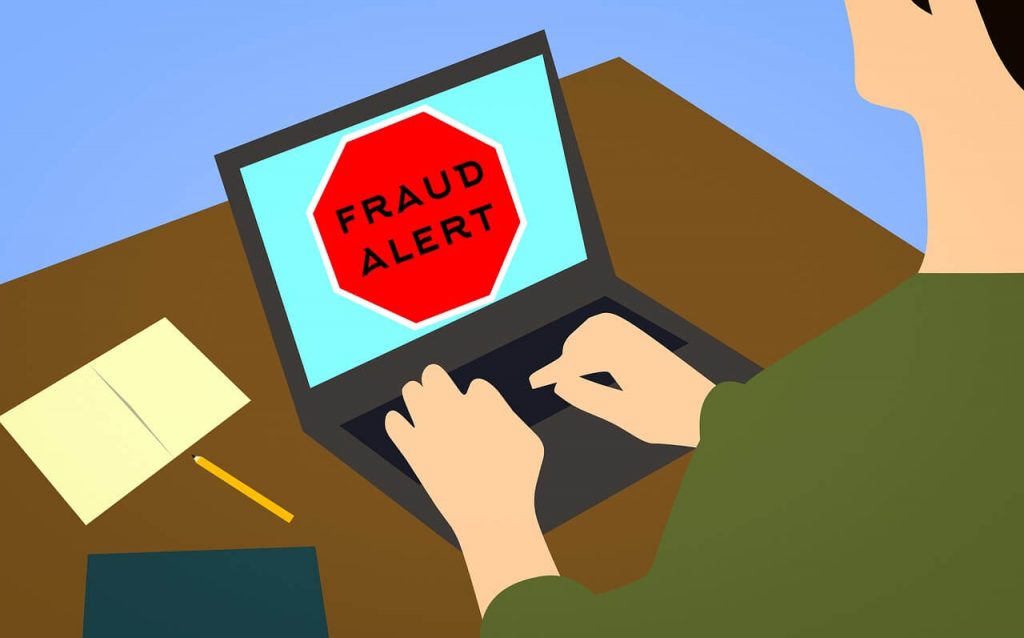Rental fraud can be devastating. But it’s quite common throughout the United States, especially in California, Colorado, Florida, and New York. And it has directly impacted a large number of people. At least 45% of all renters have directly encountered a listing or advertisement for a rental property that they believed to be fraudulent. In addition to that, another 5 million+ people in the United States have actually lost their hard-earned money to a rental scam.
If you are a renter, take the steps that are necessary to protect yourself, your money, and your information from rental fraud. Read on to learn how to avoid these extremely costly scams.

What is a Rental Scam?
Rental scams run along a common theme. The scammer – who does not have the legal authority to rent a property – attempts to obtain money from a prospective renter. It could be a home, a condo, a vacation rental, or an apartment. In most instances, the advertised property is a real property, but sometimes the advertised property doesn’t even exist. In most cases, the scammer is an imposter – that is, they do not own the property being advertised.
While most of these scams occur on the internet, they sometimes occur in person.
For example, an individual that is vacating a property that he recently rented may show that property to prospective tenants. If the individual decides that they want to rent out the property, the scammer will make the process appear “real” by drawing up a contract, collecting security deposits, and other fees. Then, they will vanish from the scene, taking the money with them and seemingly disappear.
In most instances, these individuals will use false names or even the name of the actual owner of the property. By the time the prospective renter realizes they have been scammed, the damage is done and it is too late to recoup any financial losses that have occurred.
Practice Caution
If you are in the market for a rental, be cautious, and avoid letting your guard down. Individuals that perform these types of scams are highly intelligent. They may meet with you in person or even have a listing on a reputable website that promotes rental properties.
In most instances, you will notice that the situation appears “too good to be true” or something just doesn’t “feel right” about the situation. It is in your best interest to follow your instinct in these situations.
If – for example – you feel as if you are being rushed or something seems a little off, it is probably beneficial for you to move on because, chances are, you are heading in the direction of disaster.
Always do your research, confirm who it is you are working with, and practice a high level of caution.

Circumstances That May Indicate an Issue
There are many circumstances that may act as red flags to a potential rental scam. As a renter, you should become familiar with these and practice caution if you experience them.
The following outlines the most common circumstances that may indicate that there is an issue:
- Screening Process. As you are well aware, most legitimate landlords have a strict tenant screening process. They typically check and verify your employment, they run credit checks, they typically run a criminal background check, and even request references. If you stumble across a supposed property owner that does not appear to have any interest in these screening processes or seems exceptionally eager to making the rental official, you may be dealing with a scammer and you should not proceed with any transactions with that individual.
- Beware of Pushy Tactics. While it is true that landlords do not like for their rentals to be vacant and have a desire to rent them, most are not pushy – in terms of “sales”. The rental is their investment and they have to practice caution because they do not want to jeopardize their investment. If you stumble across a landlord that seems very pushy in getting you to rent their property and/or the amount of sales pressure that they place on you is high or unwarranted, you may be dealing with a person that is attempting to scam you out of your personal information and your money.
- Meet In Person. Most landlords will want to meet directly with you. This is often necessary to show you the property and complete the paperwork. While it is true that legitimate landlords may have minor issues arise where they are unable to meet face-to-face with you immediately, this is a rare occurrence. If the supposed landlord continuously comes up with excuses as to why they are unable to meet with you and encourages you to go ahead and pay so that you may “secure” the rental, this is a red flag. This is true even if you are attempting to secure the rental through a reputable online source.
- Watch Out for High Security Deposits. If you are attempting to rent a property and the owner requests an exceptionally high security deposit or other outrageous amounts in terms of fees or rental monies, it could be that the person you are working with is attempting to steal as much money from you as possible and run.
- Look for Terms. All landlords have some type of “lease” or “rental agreement”. It may run week to week, month to month, or year to year; however, if you run across someone who says that this is not necessary, it is likely not a legitimate landlord.
The Ultimate Key to Protection
Rental scams. It is a topic that we could go on and on about; however, we have outlined the most important aspects of this crime in this guide.
If you truly want to avoid getting scammed, you should only search for and obtain rental properties through a company that offers property managers. Not only are you protected from scammers, but the company that serves you will offer certain protections, as well.
For more information, contact us today by calling: 720-839-7482
